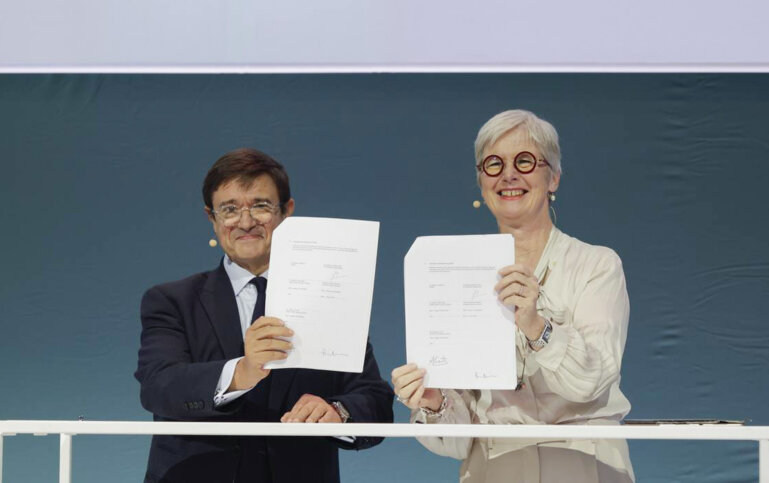Universal health coverage in oncology is still not a reality, as a recent report shows
This year World Health Organization (WHO)’s World Health Day (WHD) is centred around the theme “My health, my right”, aiming to “champion the right of everyone, everywhere to have access to quality health services”. With this claim, the WHD 2024 intends to highlight and accelerate progress toward the global response to sudden and abrupt changes of health conditions and health security which, in recent times, are becoming more common to the detriment of the lives of many.
As reported by the WHO Council on the Economics of Health for All, in fact, around 25% of WHO’s Member States still do not recognise health as a right in their constitution, with half of the world’s population not fully covered by essential health services by right. The situation in oncology is not different. A recent WHO report describing how countries invest in cancer care by evaluating the inclusion of cancer care in their health benefit packages, portrayed a global situation that is more alarming than that showed for the general Universal Health Coverage (UHC): less than 40% of countries cover basic interventions for cancer management, and this proportion is further reduced in low- and middle-income countries (LMICs), with variable inclusion that could be as low as 10% in some settings. Similar disparities were also reported by early results from the ESMO International Consortium Study on the availability, out-of-pocket costs, and accessibility of antineoplastic medicines 2.0.
Access to medicines appears to be modulated by the income of the countries. However, prioritisation of cancer care as part of the UHC, as informed by value metrics, can be a major driver toward “cancer care to all”, especially in LMICs. This was well documented when WHO and ESMO collaborated to support Kazakhstan to optimise the country’s cancer treatment protocols (ESMO Open. 2022 Feb; 7(1): 100373): when policy formulation is based on global quality standards of treatment, as per WHO Essential Medicines List, and value frameworks that are consistent and validated, including the ESMO Magnitude of Clinical Benefit Scale (ESMO-MCBS), people-centric and impact-oriented outcomes can be achieved.
Still, I wonder: how can we move toward progress in cancer care, and results in oncology-specific UHC, when cancer care is so often de-prioritised in global health?
A few years ago, a provocative editorial invoked global health to include cancer care among the health priorities for the world, when everyone was considering cancer treatment as ‘unlikely to be cost-effective’ (Lancet. Vol 392 September 8, 2018). Work has been done in the years, as a consequence of global health calling for prioritisation of cancer care in resource-constrained settings. Evolution has been observed and today's focus is the implementation of such a change rather than its solely speculative and theoretical formulation - this is a big win toward UHC in oncology.
Now, it is really time to understand how people are making a difference for those in need. My greatest inspiration, for example, is the Indian National Cancer Grid, that Dr Manju Sengar from Tata Memorial Hospital in Mumbai incredibly described at the ESMO Congress 2023.
The very basilar and essential forces that support the Grid initiative are value and consistency: the drivers of population health impact. Implementing value in healthcare starts from the knowledge that not all cancer interventions are the same, including medicines, and that we must be able to communicate their differences and be cognisant of their intrinsic value for making clinical decisions - that is exactly what the ESMO-MCBS can help with. Then, consistency: it means that we strongly support the idea of basilar quality standards of care as described in shared policy documents and guidelines, to ensure that equitability is delivered in each country through fair and transparent implementation efforts, with no difference among people, as expressed by the commitment to UHC.
Looking at the change driven by the Indian National Cancer Grid, I am now more than convinced that the perfect recipe to develop UHC for cancer exists, and it is based on very elementary ingredients such as value, consistency and solidarity. Taken together, these driving forces call for collaboration in oncology, going beyond the expertise closed in silos, beyond the achievement of personal milestones in curriculum-development attitudes. It is moving steps toward people in need.
My exercise for the World Health Day this year is: asking what solidarity means in the common sense, and how solidarity can be implemented in cancer care.






